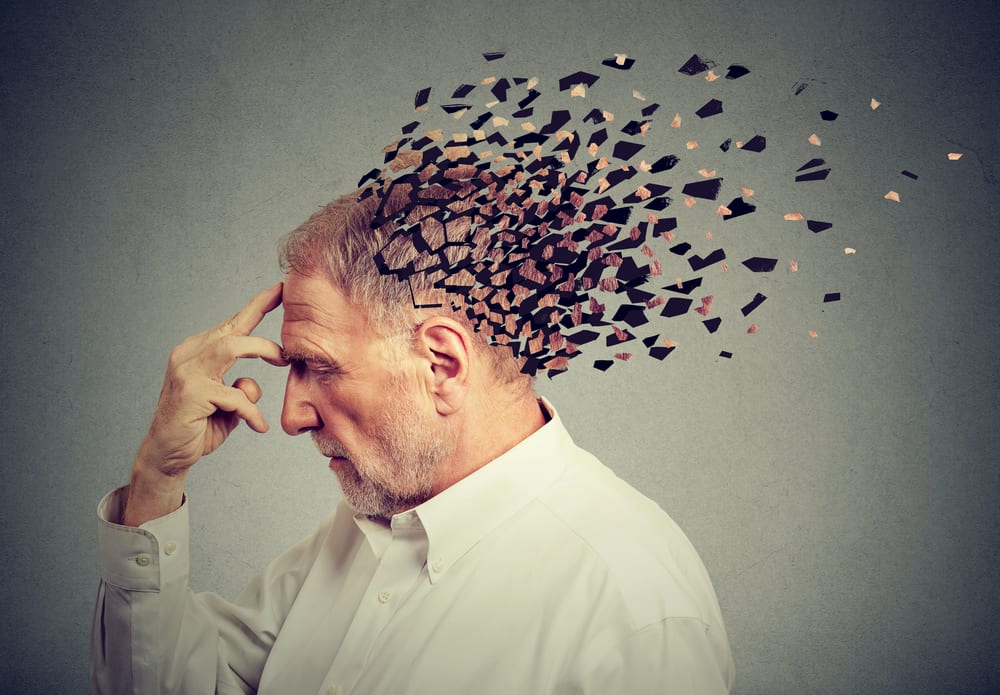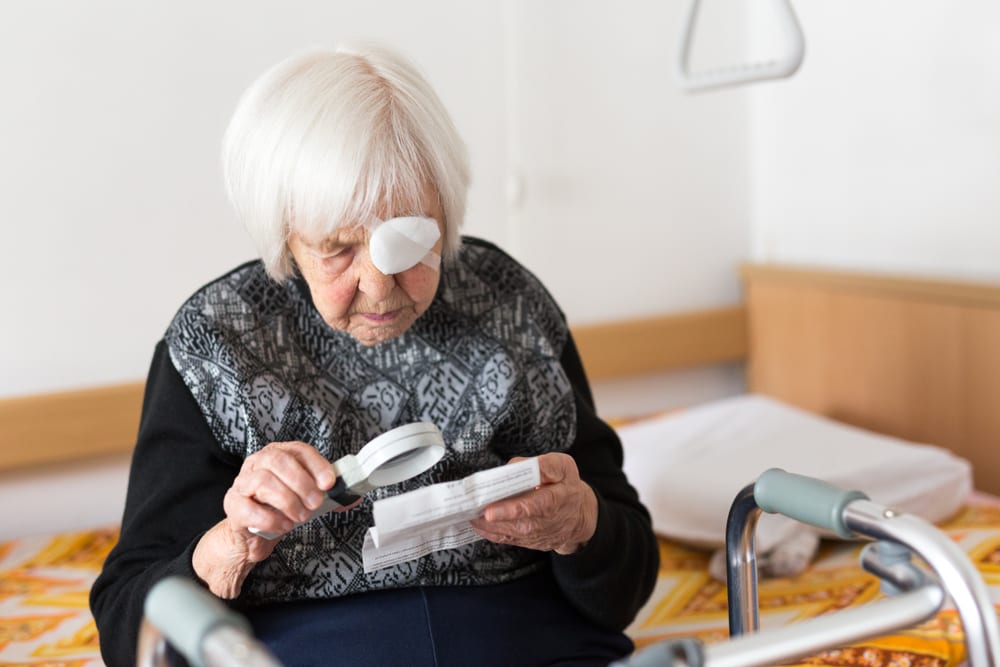
Alzheimer’s disease is the most common type of dementia. The two terms Alzheimer’s and dementia are often mistakenly used as synonyms. However, dementia is only one of the symptoms that can occur in patients during the course of the disease. The disease, in which plaques accumulate in the brain, usually occurs with increasing age.
Even though this brain disease cannot be cured yet, it is important to recognize the symptoms early in order to improve the patients’ quality of life. On the following pages we will show you possible warnings for Alzheimer’s disease. However, since the course of the disease does not follow any pattern and there are individual differences, the present symptoms may also have a different cause and should always be discussed with a doctor.
1. forgetfulness

Forgetfulness alone is by no means a warning signal, but should not be underestimated. Everyone forgets every now and then where he put his glasses or the name of an opposite. However, if this forgetfulness occurs more regularly, it may be a sign of Alzheimer’s disease.
Thus, those affected often repeat their questions because they have already forgotten the answer again. In addition, if patients miss appointments that were arranged only a few days earlier, it helps to use notepads. Here you can write down important dates and tasks so that they will not be forgotten later. As the disease progresses, this memory loss becomes worse and worse, so early treatment is very helpful.
2. missing temporal and spatial orientation

One of the biggest problems with Alzheimer’s disease is the temporal and spatial disorientation. Especially the internal clock is affected in the patients. So they forget which day of the week or month is or even which year is currently being written. For example, you don’t know which day is Christmas anymore. Due to the disease they remember e.g. earlier times and therefore consider their own children as friends or siblings.
Further signs of dementia are problems with spatial orientation. Patients find it difficult to find their way in familiar surroundings. For example, they no longer know the way back to their apartment or get lost in their own house.
3. social isolation

In contrast to an age-related personality change, in which previous hobbies are regarded as strenuous, Alzheimer’s disease can manifest itself in a sudden withdrawal from social life. Since the brain disease can cause Alzheimer’s patients to forget how certain activities are performed, those affected often withdraw from social or sporting activities. They often avoid contact with their fellow human beings because they are ashamed of the disease or are afraid of embarrassment.
Study results show that social isolation is not only a hindrance during the course of the disease, but can also be a cause of the disease.
4. delusions

The course of the disease is characterised by an increasing disturbance of memory. This can be expressed by the fact that patients suffer from delusions and hallucinations. There are different species that can make themselves felt in different ways. If, for example, the patient puts on his glasses, which are subsequently found by a fellow human being, he may hold this person responsible.
On the other hand, delusions such as eavesdropping or persecution delusions can also occur. The patient suddenly hears noises that worry him or he no longer trusts his caregivers or family members. In addition, different people can be seen who are not really there.
5. speech disorders

In Alzheimer’s patients, various speech disorders can occur in the course of the disease. They usually have problems with their vocabulary or their ability to express themselves. In order to communicate, the patients usually use similar sounding words or filler words, because they can no longer remember what meaning words have or what they stand for.
This also makes it more difficult for them to repeat certain sentences because they lack the necessary language comprehension. The conversations are often interrupted by long breaks, because they think about what they actually wanted to say. Due to these signs of disease, it becomes difficult to understand the person in question, so that many patients avoid a conversation.
6. lack of hygiene

In the advanced course of the disease, those affected can no longer carry out everyday activities alone. This also includes personal hygiene. Because of their own sense of shame, many patients do not care for themselves because they are uncomfortable being dependent on the help of others. An even greater challenge here is intimate care, so that they reject the support offered first.
This also includes the fact that patients can no longer remember the last time they took a shower or brushed their teeth due to illness. Therefore, it is important to develop a solution strategy to facilitate daily care.
7. collecting and laying objects

As mentioned earlier, Alzheimer’s patients often forget where certain objects are located or where they last placed them. In case of a loss they blame the others for it, so they start to hoard certain objects to hide them from the relatives or helpers.
However, as they forget where they have hidden these things during the course of their illness, they begin to look for them in various cupboards or other storage facilities. During the search operation it can be very messy in the apartment afterwards. Since those affected can no longer remember where food belongs, they also like to put it in the wardrobe instead of the refrigerator.
8. decision problems

Other signs of Alzheimer’s disease may be sudden personality changes. In addition to the symptoms already mentioned, those affected find it more difficult to make decisions during the course of the disease. If a disease has been diagnosed in those affected, various support options should therefore be considered.
In certain areas, patients can no longer make decisions alone, so they are dependent on care. This means that those affected are not alone in important appointments or decisions. They also have sudden problems making the right choice of clothes. Inappropriate to their previous behaviour, they suddenly dress in a rather colourful way or go into town with their bathrobe.
9. changes in drinking and eating habits

During the course of the disease, the sense of taste and eating habits of the person affected also change. Although it is normal to need less energy in old age, it is still important to eat a balanced diet. The changes caused by the disease can be noticed in two different ways.
On the one hand, those affected often forget that they have just eaten and therefore eat breakfast or another meal several times a day. On the other hand, loss of appetite or a lack of thirst can also be further symptoms of Alzheimer’s disease. Patients feel physically weakened because their calorie intake is too low. Drinking too little also increases the risk of confusion.
10. visual impairment

In the course of the disease, the affected persons may suffer from vision disorders. Even if the patients did not need glasses until then, visual impairment can be another sign of Alzheimer’s disease. The sight defect caused by the disease can manifest itself in different ways.
Examples are a disturbance of the colour perception or problems with the determination of contrasts. During the course of the disease, the senses are further and further impaired, so that the patients have difficulties reading. When vision gets worse and worse, people are no longer able to assess distances correctly, so that they knock objects over or reach out.






